"Vegetarian Meat" (Plant-Based Meat Substitutes) Seems To Have Little Room For Market Share Growth
I went to a large supermarket to buy myself lunch the other day. I've been considering shifting my diet towards a more vegetarian direction than before. Based on what I've seen, I'm not convinced the meat industry is very good at treating the production animals very well. In some ways, it's pretty awful.
Besides, red meat in particular is unhealthy. It's a major risk factor for cancer and heart disease and I'm not a huge fan of either.
Generally, plant-based food is also cheaper and that's because of a simple thermodynamic reason. The caloric efficiency of growing meat varies from about 15% (poultry) to about 4% (beef). That roughly translates into an order of magnitude of field acreage wasted to support the metabolism of the poultry or cattle while they grow compared to using it to grow something to be consumed by humans directly.
This section here contains products that have plant-based meat substitutes in them. The section is not very large but it seems large enough to have something to try. Certainly, the range of products is much larger than it used to be only 10-15 years ago.
Let's take a look.
€15.38/kg. A similar product containing pork costs about 20% less.
€31.96/kg. Come on. Real meat wins again. You can get sirloin steak at roughly half the price.
If you want a steak but are not completely against eating real meat so long as you know the cattle has been raised under good conditions, I'd say you should go for that if you want to treat yourself. It'll be worth the higher price.
I'm guessing those are made of chickpeas or peas of some other kind.
I'm guessing his is imported since the price is that high.
The idea of sausages is to contain a mixture of things. Many types of sausages are traditionally pretty low on meat. Next time, I'll maybe try these.
My daughter has tried some of these meat substitutes and she hasn't been very impressed by any of them. (Granted, she's harder to impress than myself.)
Conclusion
Particularly given the state of the economy, I think this type of highly refined meat substitutes will have a difficult time penetrating the market to any greater degree. They are quite pricey whereas there exist many perfectly fine dishes that contain no meat whatsoever that are inexpensive to prepare due to the low price of the ingredients. For example, roots and vegetables tend to be very cheap in this country. Typically, their prices range from one to a few euros per kg. It is very simple and straightforward to wash, peel and cut up enough to fit onto an oven tray to bake them (with some oil and garnishes on top) into a healthy, tasty and an inexpensive meal.
Posted Using LeoFinance Beta
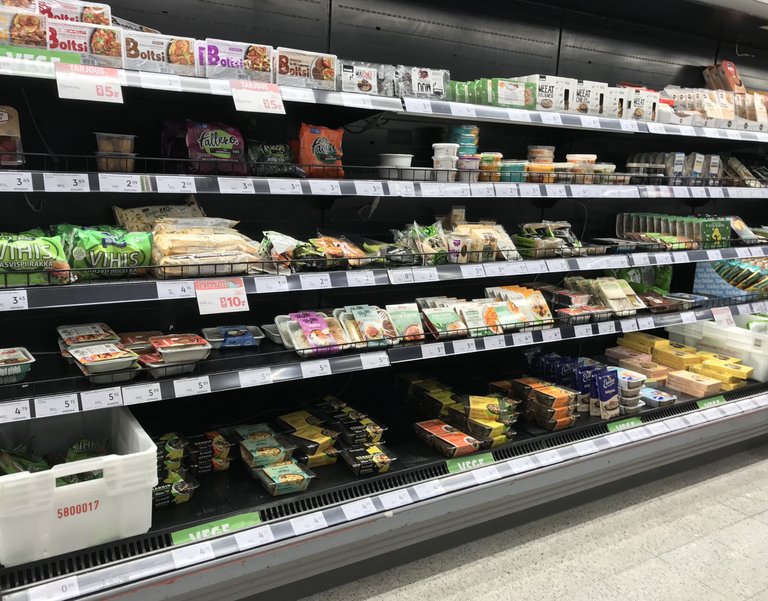
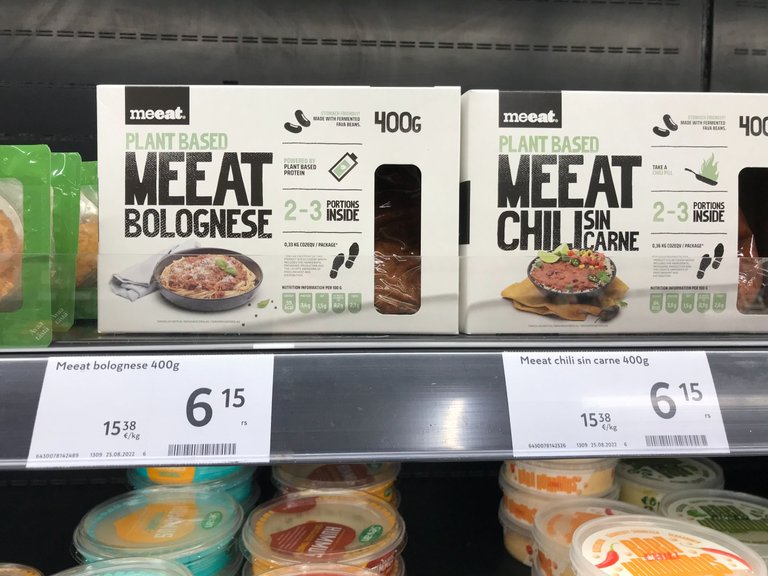
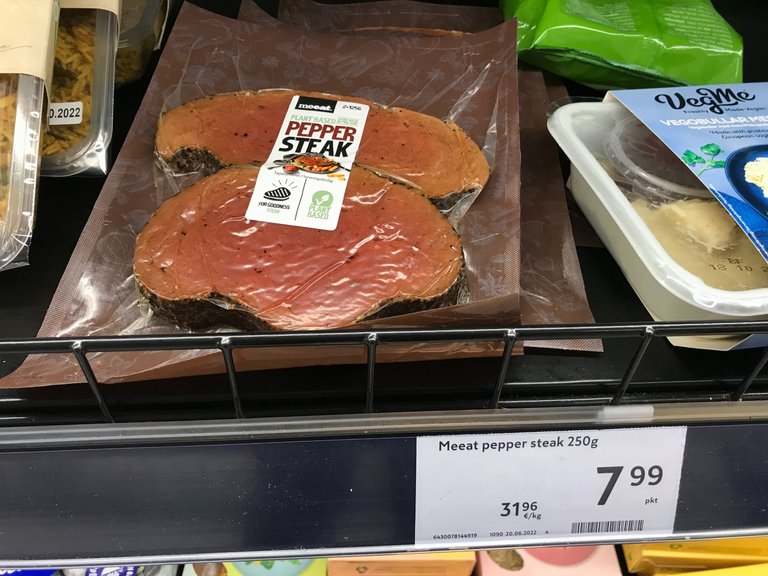
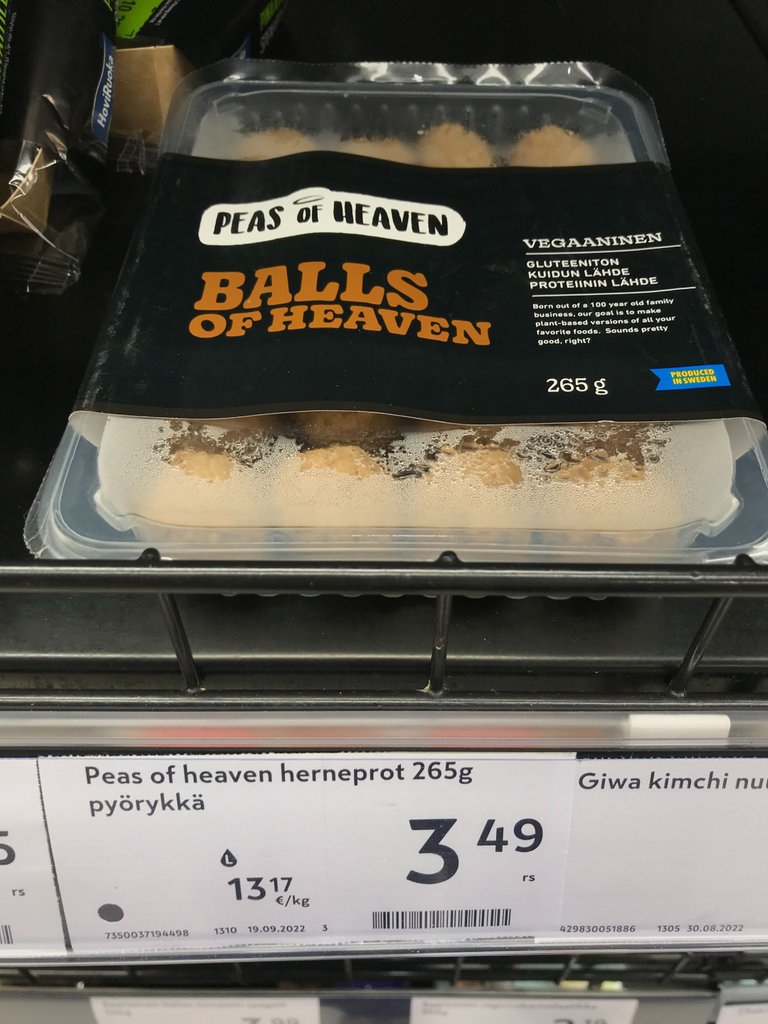
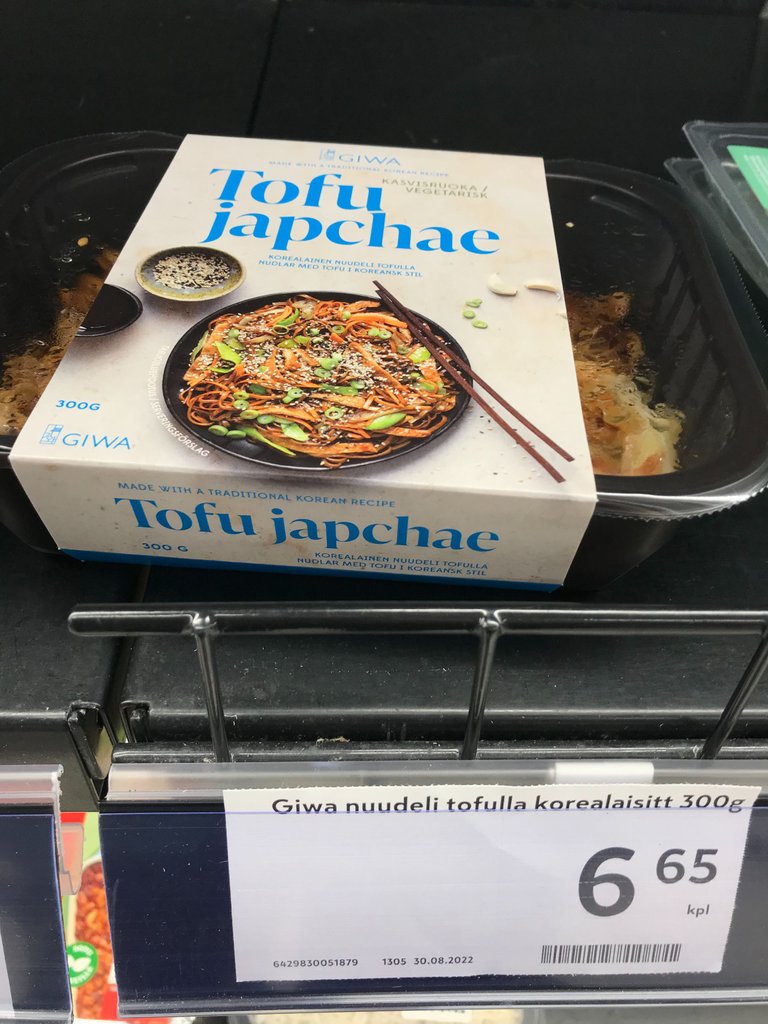
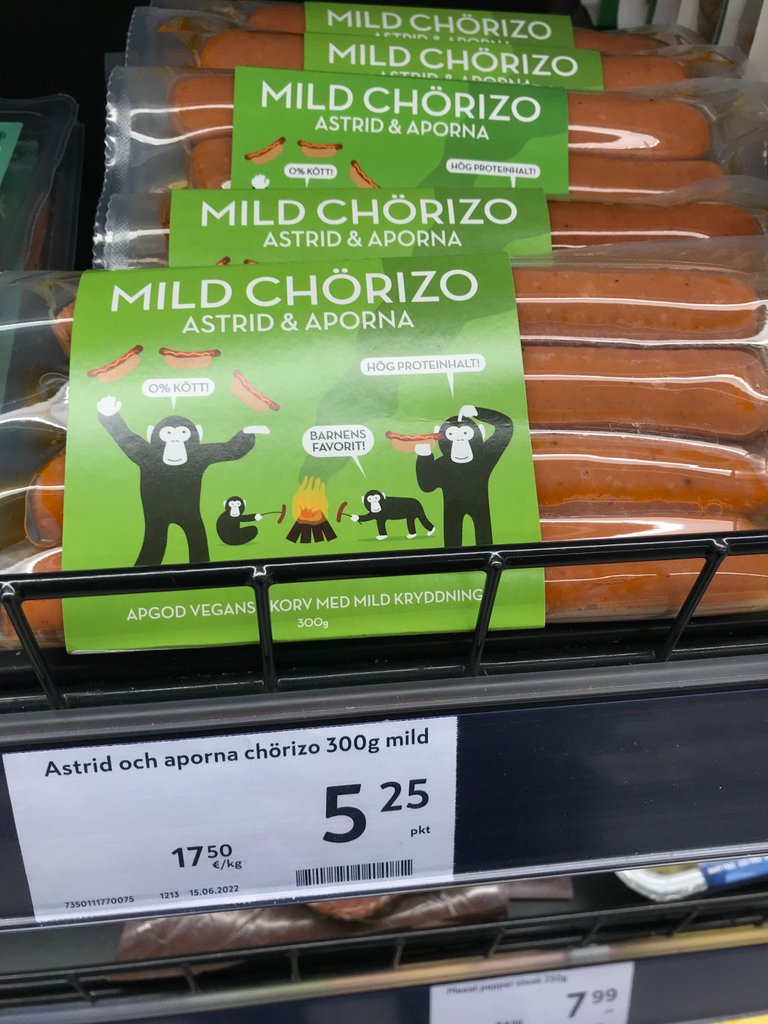
With the current economic condition right now, I would go to the less expensive choice.
If you have money to spare, asset prices are quite low at the moment. You might be able to make an investment, however small, at a reasonable cost and reap the benefits 5-10 years down the road.
I am also guessing much cheaper than 10-15 years ago.
Just like sliced bread - It was easier, cheaper in the long run, and faster to produce. Much easier logistically and to sell. The convinience was nothing like consumers ever had. If and when plant-based alternatives reach the level of convinience, production infrastructure, and hopefully reach a level of taste that is widely accepted, we will see more competition in the market and eventually lead to normalizing the products including availibility and prices.
That may be the case. But I suspect these products are mainly consumed by people who have the means and the interest to consume expensive novelties.
I'd love it if tissue engineering advanced to a point where it would be possible to grow the finest meats inexpensively in factories without having to involve animals at all.